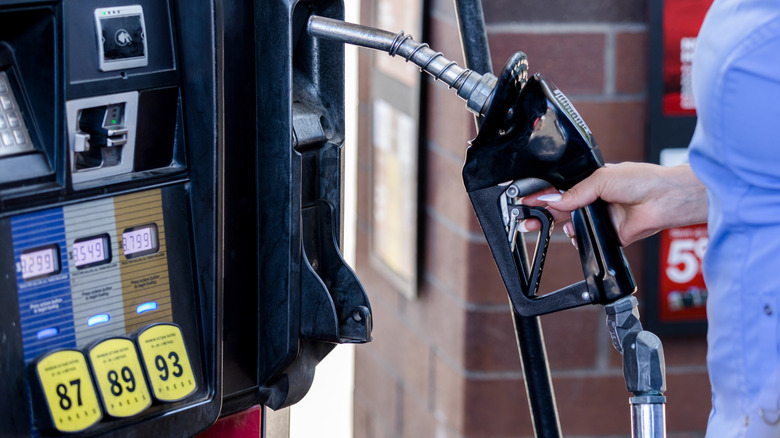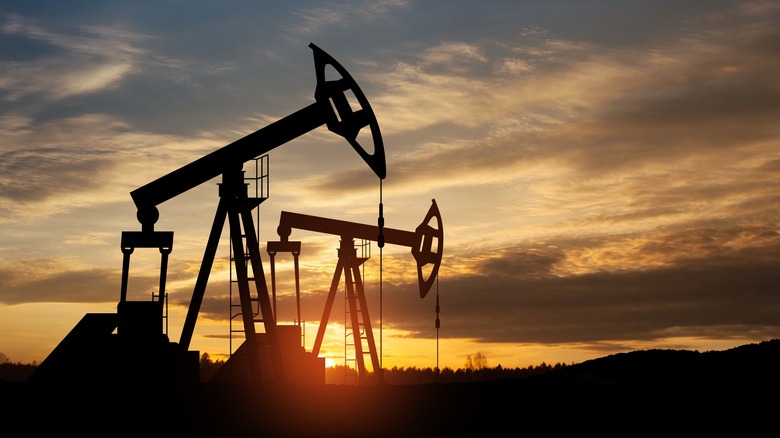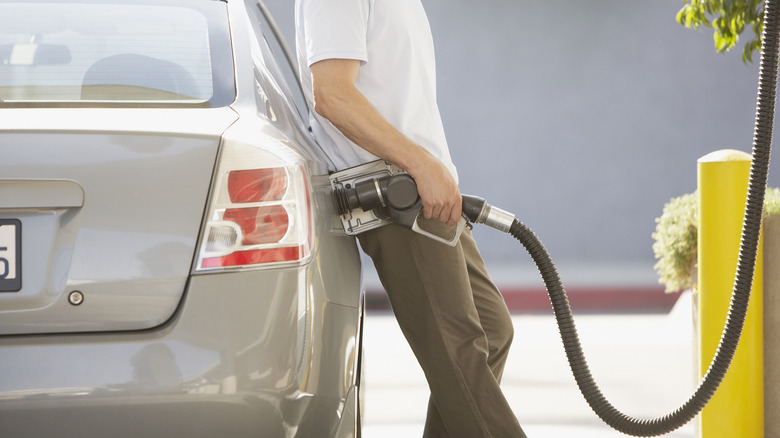What Is Ethanol-Free Gas, And Should You Use It In Your Car?
If you're a casual driver and don't pay much mind to the specifics of fuel composition, filling up at the gas station can be confusing, especially if it's a new car. Whether you're topping off a humble sedan or gassing up a high-performance motorcycle, you've got to figure out what all of the octane ratings on the pumps mean, and consult your vehicle's manual to find the ideal fuel.
However, there's a bit of an outlier among most commercially available fuel, one that may not even be available at the pump. That mysterious fuel is ethanol-free gas, and if you can find it, it'll probably be more expensive than anything else on the pumps. As well, just like how premium fuels aren't automatically better than regular ones, there are a few shades to the matter of ethanol-free gas that you would do well to learn about before pulling out the pump handle and filling up ethanol-free.
What is ethanol-free gas?
Ethanol-free gas is pretty much exactly what it says on the tin: Traditional fuel with no ethanol or other fuel additives mixed in. It's just plain old petroleum gasoline with very little additives. While this sounds very simple, this is actually less common by today's fuel standards than you might think. Even the regular fuels at the gas station pumps typically have at least a little bit of ethanol mixed in, both for economic and environmental purposes.
The finality of oil is an ever-present concern, so most fuel providers use ethanol as a filler to pad out their fuel supplies. As for the environment, pure petroleum fuel outputs a greater concentration of toxic emissions than ethanol-mixed fuel or pure ethanol, so health standards generally frown upon its usage. It's for these reasons that you may not be able to find ethanol-free gas on the pump at your local gas station, or it'll probably cost a bit more than the mixed stuff if you do find it.
Is ethanol-free gas safe to use?
Ethanol-free gas is perfectly safe to use in your car or motorcycle purely in terms of engine health and performance. Combustion engines were designed with pure petroleum in mind in the first place, so using it won't hamper your vehicle's performance. Since there's no filler in it, ethanol-free gas actually provides better mileage and lasts longer in the tank without going stale, as well as reduces the likelihood of corrosion over time. It's also safe to mix ethanol-free gas and ethanol-mix gas, since that just results in regular ethanol-mix gas.
That said, the main reason you don't see ethanol-free gas anymore is because of its emission-causing nature. According to the U.S. Department of Agriculture, one of the factors leading to the widespread adaptation of ethanol-mixed gasoline was due to ethanol's ability to reduce greenhouse gas emissions from standard or non-blended gasoline. That's kind of the whole reason society has been researching alternative fuels, because pure petroleum fuel puts a lot of nasty stuff into the air. Using it won't hurt you or your car directly, but the local flora and fauna might not appreciate it.


